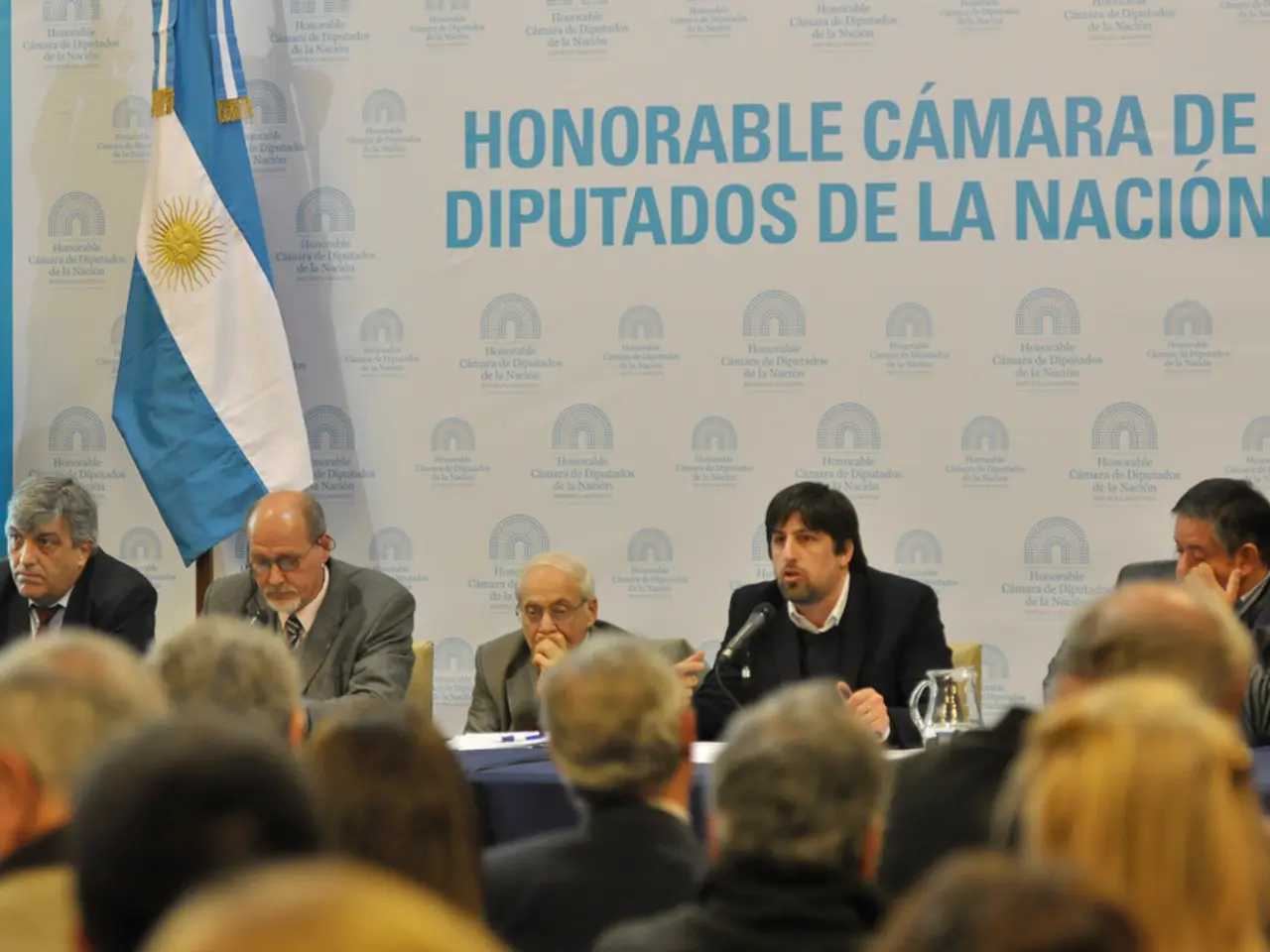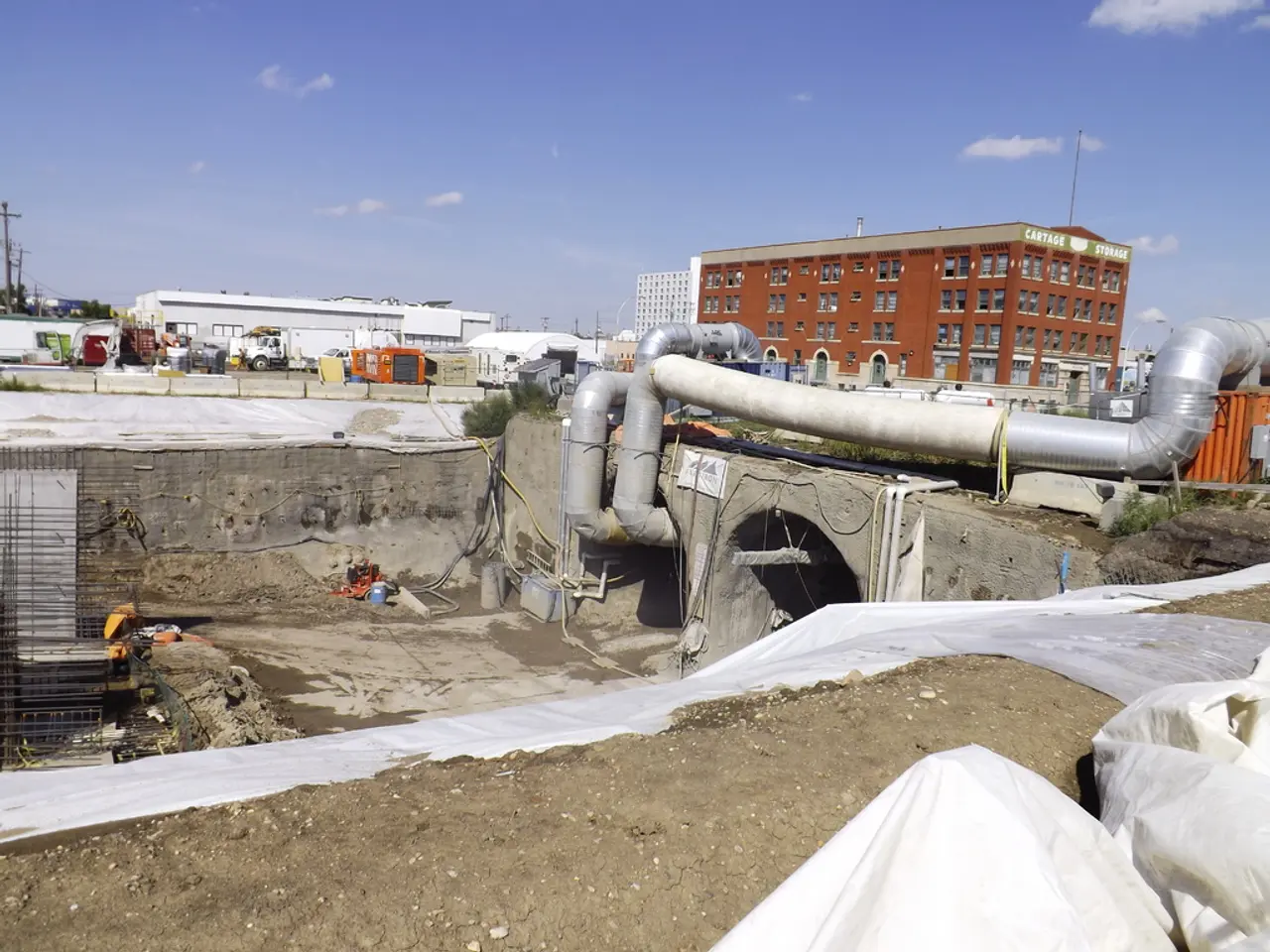Supreme Court Justice Gavai establishes boundaries, but the government oversteps them; awaiting Supreme Court's response.
In a significant development, the Chief Justice of India (CJI), Bhushan R Gavai, has issued a stern warning against the selective clearance of judicial appointments by the Union Law Ministry. This warning comes as the Ministry has cleared only some names recommended by the Supreme Court Collegium for elevation to high courts, a practice described as "selective" or "cherry-picking" of recommendations [1][4].
CJI Gavai has vowed to usher in transparency in Collegium recommendations and stated that the top court will adopt a procedure of complete transparency [1]. His remarks reflect institutional unease with the government’s approach to judicial appointments, as such selective actions undermine the collegium system’s integrity [1][4].
The latest incident of selective clearance occurred shortly after CJI Gavai’s public caution to the executive. The Supreme Court Collegium had recommended four advocates for appointment as judges of the Bombay High Court, with Rajesh Sudhakar Datar being the first. However, the Central government cleared only three out of the four names, ignoring Datar's name, the first and most senior on the list [1].
The government reportedly raised objections to Datar's name based on old social media posts, but the Collegium rejected these objections [1]. Advocate Datar has since withdrawn his consent for judgeship in light of the government’s action. Similarly, Intellectual property lawyer Shwetasree Majumdar withdrew her name from consideration for judgeship at the Delhi High Court after it was notified by the government in January 2025 [1].
The silence of the judiciary creates space for the executive to act without accountability and chips away at the principle of institutional coherence. The judiciary has remained silent since the notification was issued, creating a gaping disconnect between the words spoken at a public forum and the action that followed.
This practice of selective clearance has far-reaching implications for the judiciary in India. It delays the filling of critical vacancies, exacerbating case backlogs and straining the judicial system [1][2][3]. It also erodes the collegium’s authority and independence, potentially undermining judicial independence [4].
Moreover, candidate withdrawals and morale impact are also significant concerns. Some candidates withdraw their consent amid delays and uncertainty, which further complicates the appointment process [1][4]. The transparency and accountability tensions are another area of concern, as the collegium recently moved towards more transparent and rigorous personal interviews of candidates to assess judicial temperament and constitutional values beyond mere credentials [2][3]. Selective governmental approval may undermine this effort to ensure balanced and merit-based appointments.
In conclusion, the incomplete clearance of collegium recommendations by the Union Law Ministry disrupts the smooth functioning and timely replenishment of the judiciary, poses institutional challenges to judicial independence, and creates procedural hurdles that could affect the quality, morale, and public perception of judicial appointments in India [1][4]. It is crucial for the Supreme Court of India, through the Collegium, to assert its position and follow through on CJI BR Gavai's warning against the executive treating Collegium decisions like a buffet table.
- The ongoing practice of selective clearance of judicial appointments by the Union Law Ministry, as evidenced by the recent incident with Rajesh Sudhakar Datar's name being ignored, is a significant concern in the realm of policy-and-legislation and politics, as it erodes the integrity of the Collegium system and undermines judicial independence.
- The silence of the judiciary in response to selective governmental approval of Collegium recommendations has far-reaching implications, not only for the quality, morale, and public perception of judicial appointments, but also for the principle of institutional coherence and the maintenance of an accountable executive, all of which fall under the umbrella of general-news.








